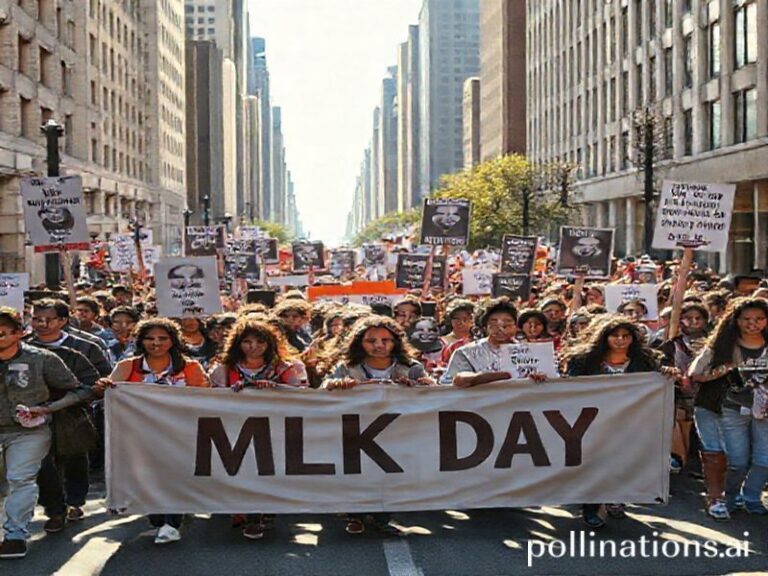Tomatoes vs Yellowcake: How a Sahara-Sized Spat Between Morocco and Niger Is Remapping Global Supply Chains
RABAT-NAMEY CORRIDOR — Somewhere between the mint tea in Casablanca and the dust storms in Niamey, two sovereign states have decided to treat the planet to a very North-African edition of “Why Can’t We Be Friends?” On paper, the spat between Morocco and Niger looks like a standard diplomatic lovers’ quarrel: the Moroccan ambassador was politely shown the door in Niamey on 48 hours’ notice, Rabat responded by expelling Niger’s chargé d’affaires, and before you could say “non-reciprocal visa regime,” flights were grounded and trade lanes began to resemble a post-apocalyptic parking lot. Yet behind the ritualized choreography lies a story that reaches from Washington think-tank Zoom calls to Beijing’s rare-earth spreadsheets—proof, once again, that geopolitical tantrums travel first-class even when the principals can’t.
Let us begin with the obvious: neither Morocco nor Niger is exactly a household name in the part of the world that still thinks “Sahara” is just a misspelling of a luxury desert resort. But size, dear reader, is a fickle mistress. Morocco, population 37 million and climbing, controls roughly 72 percent of the global phosphate market—an essential ingredient for fertilizers that keep your avocado toast Instagrammable. Niger, meanwhile, sits on about 5 percent of the planet’s uranium, the magic dust that lets French reactors hum while Parisians debate the finer points of nuclear chic. Take away either commodity and the global food-energy nexus starts to wobble like a TikTok influencer after three espressos.
Enter the junta. Last summer, Niger’s military brass decided democracy was terribly 2019 and staged a coup. Morocco, ever the monarchical pragmatist, condemned the takeover with the enthusiasm of a vegan at a barbecue. Rabat’s calculus was simple: cozying up to military regimes is bad for the brand when you’re selling yourself to Europe as “stable, slightly exotic, and definitely not run by guys with epaulettes.” Niger’s new strongmen, in turn, read the Moroccan statement as neo-colonial sass and hit the eject button on the ambassador. Cue the dominoes.
The immediate fallout is comically symmetrical: Moroccan tomatoes—yes, the same ones that keep European supermarkets photogenic in winter—now rot at the border like unwanted houseguests. Nigerien uranium, meanwhile, has to take the scenic route through Benin’s Cotonou port, adding a cheerful 1,200 km detour for every glowing yellowcake drum. Global spot prices for both commodities have ticked up just enough to make hedge-fund interns update their Excel macros, but not enough for the average consumer to notice. Translation: the algorithmic traders are quietly thrilled, and the rest of us will pay an extra cent per kilo without ever knowing why.
Zoom out and the subplot thickens. The United States, still pretending to care about Sahelian democracy, has slapped visa bans on the junta while simultaneously asking Morocco to “exercise restraint”—diplomatic speak for “please don’t make us choose sides between our phosphate buddy and our uranium fling.” France, nursing both historical guilt and a 56-reactor addiction, is begging Rabat to please, please let the yellowcake trucks through Tangier Med. China, ever the opportunist, has offered Niger shiny new roads in exchange for exclusive ore rights; Beijing’s envoys were last seen taking selfies in Niamey with the sort of smiles that say, “We’ll still be here when the French tires go flat.”
Then there is the Wagner-adjacent crowd, currently rebranding themselves into something with fewer sanctions and a better logo. Rumor has it they’ve pitched the junta a package deal: security guarantors, social-media influencers, and a Spotify playlist titled “Regime Survival for Dummies.” The Moroccans, whose own security services have a black-belt in narrative control, responded by launching a 24-hour news channel in Hausa—a linguistic flex aimed squarely at Nigerien living rooms.
What does it all mean for the proverbial global citizen? For one, the next time you bite into a winter tomato or charge your electric toothbrush, spare a thought for two nations whose sand dunes are now proxy battlegrounds for the supply chains that keep modern life humming. Second, marvel at the elegant absurdity of 21st-century statecraft, where entire economies pivot on the diplomatic equivalent of unfollowing someone on Instagram. And finally, remember that in the great ledger of human folly, the line between vital resource and geopolitical football is thinner than the paper in a non-proliferation treaty.
As of press time, both capitals insist the channels of communication remain “open”—diplomatic jargon for shouting through locked doors. Meanwhile, the Sahara keeps expanding, indifferent to passports and price indices alike. Somewhere in that vast anonymity, a lost tomato truck and a uranium convoy might yet meet, exchange commodities, and drive off into the sunset. If only the rest of us could solve our problems so efficiently.







